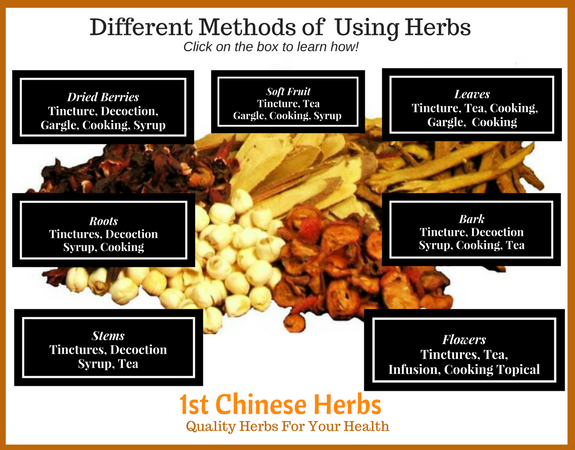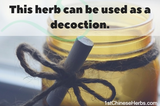Herbal Information for Coptis Root in Cut Form
Why Is Coptis Root - Huang Lian Important In Traditional Chinese Medicine?
Coptis, also known as Huang Lian in Traditional Chinese Medicine (TCM), is a herb that has been used for centuries in Chinese herbal medicine. It is derived from the root of the Coptis chinensis plant, which is native to China.
In TCM, Coptis is valued for its bitter taste and cooling properties. It is often used to clear heat, dry dampness, and detoxify the body. Coptis is commonly used to treat conditions such as digestive disorders, infections, fevers, and inflammation.
One of the main active compounds in Coptis is berberine, which has been extensively studied for its therapeutic properties. Berberine has antimicrobial, anti-inflammatory, and antioxidant effects. It has been shown to have potential benefits for conditions such as diabetes, cardiovascular disease, and gastrointestinal disorders.
Scientific research on Coptis, particularly its main bioactive compound berberine, has gained significant attention in recent years. Here are some key findings from scientific studies:
-
Antimicrobial Properties: Coptis and berberine have shown potent antimicrobial activity against a wide range of bacteria, fungi, viruses, and parasites. They have been studied for their potential use in treating various infectious diseases, including respiratory infections, gastrointestinal infections, and skin infections.
-
Anti-inflammatory Effects: Berberine exhibits anti-inflammatory properties by inhibiting pro-inflammatory molecules and signaling pathways in the body. It has been investigated for its potential application in conditions associated with chronic inflammation, such as inflammatory bowel disease, arthritis, and cardiovascular diseases.
-
Antioxidant Activity: Coptis and berberine possess antioxidant properties that help to reduce oxidative stress and protect cells from damage caused by free radicals. This antioxidant activity may contribute to their potential benefits in conditions related to oxidative stress, such as neurodegenerative diseases and aging.
-
Blood Sugar Regulation: Berberine has been extensively studied for its effects on blood sugar control. It has shown promising results in improving insulin sensitivity, reducing fasting blood glucose levels, and managing diabetes. Berberine may also help regulate lipid metabolism and improve lipid profiles.
-
Cardiovascular Health: Research suggests that berberine may have beneficial effects on cardiovascular health by reducing cholesterol levels, lowering blood pressure, improving endothelial function, and reducing the risk of heart disease.
-
Gastrointestinal Disorders: Coptis has traditionally been used to treat gastrointestinal disorders in Traditional Chinese Medicine. Scientific studies have explored its potential use in conditions such as irritable bowel syndrome (IBS), gastric ulcers, and diarrhea with positive results.
In folklore and traditional beliefs, Coptis or Huang Lian holds significant importance in Chinese culture. Here are a few aspects of its folklore:
-
Legendary Origins: According to ancient Chinese legends, Coptis was believed to have been created from the tears of a mythical creature called the Yellow Empress, who wept for her people's suffering. The herb was said to possess healing properties, offering relief and promoting well-being.
-
Detoxification and Purification: Coptis is often associated with detoxification and purification in both the physical and spiritual realms. It was believed to cleanse the body of toxins, clear heat, and eliminate dampness, restoring balance and harmony to the body's energy.
-
Protection Against Evil Spirits: In some folktales, Coptis was considered a protective herb against evil spirits and negative energies. It was often used in rituals or as an amulet to ward off malevolent forces and bring good fortune.
-
Symbolism of Bitterness: Coptis is known for its intensely bitter taste. In Chinese culture, bitterness is associated with strength and resilience. Symbolically, Coptis represents the ability to endure hardships and overcome challenges.
-
Herbal Wisdom Passed Down Generations: The use of Coptis in Traditional Chinese Medicine has been passed down through generations as part of herbal wisdom. Its efficacy and healing properties have been observed and recorded over centuries, contributing to its significance in folklore.
It is important to note that folklore should be interpreted within the context of cultural beliefs and traditions, rather than as scientific evidence.
Common Name: Coptis
Botanical Name: Coptis spp; Rhizoma
Channels/Meridians: Heart, large intestine, liver, stomach
Other Names: Coptis Root, Golden Thread Root, Rhizoma Coptidis
Pin Yin Name: Huang Lian, You Ji Huang Lian
Other Ingredients: None, nothing has been added to this product.
Package Size: 1 pound
Form: Cut / Sliced, not uniform pieces.
Origin: China
Brand: Nuherbs Organic - Geo-Authentic Herbs
Cautions:
-
Bitter Taste: Coptis has an extremely bitter taste, which may not be suitable for everyone. Some individuals may find the taste unpleasant or difficult to tolerate.
-
Pregnancy and Breastfeeding: The use of Coptis during pregnancy and breastfeeding is not recommended without proper medical guidance. It is always best to consult a healthcare professional before using any herbal remedies during these periods.
-
Drug Interactions: Coptis may interact with certain medications, including but not limited to blood thinners, antiplatelet drugs, anticoagulants, and medications metabolized by the liver. It is crucial to inform your healthcare provider about all the medications you are taking before incorporating Coptis into your healthcare routine.
-
Allergic Reactions: Some individuals may have allergic reactions to Coptis or other plants in the same family (Ranunculaceae). If you experience any signs of an allergic reaction, such as rash, itching, swelling, or difficulty breathing, discontinue use and seek immediate medical attention.
-
Digestive Issues: While Coptis can help with digestive disorders for many people, some individuals may experience gastrointestinal upset, including nausea, vomiting, or diarrhea.
Naturally Occurring Components: Berberine, hydrastine, coptisine, palmatine, epiberberine, columbamine, jatrorrhizine, worenine, magnoflorine, ferulic acid, obakunone, and obakulactone.
 Additional Information
Additional Information
- Drains Fire
- Relieves Toxins
- Clears Heat
- Drains Dampness
- Calms Heart Fire
- Liver and Digestive support
- Healthy Glucose Support
- Supports Immune Defenses
Product Properties: Bitter, Cool
In traditional Chinese medicine Coptis Root is a natural herbal remedy. The yellow color of the rhizome is largely due to the high alkaloid content and it has been used as a dye as well. Most of the historical information on use of this plant comes to us from traditional Chinese, Japanese, and Korean herbal uses. Coptis Root can be used as a substitute for Goldenseal.

Check out our How to Use Bulk Herbs page to see how to use herbs correctly.

About Nuherbs Lab Tested Quality
Each batch of herbs is dual-lab tested by our in-house lab and independent third party lab. Our in-house lab is equipped with instruments such as a high performance liquid chromatography, moisture determination meter, Fourier transform infrared spectrometer, atomic absorption spectrophotometer, gas chromatograph, etc.
In addition, the following additional tests are performed:
- Micro bacteria
- Pesticides - over 200 pesticides tested for (Uab 2000 screen).
- Heavy Metals - Lead, Mercury and Arsenic
Traditional Chinese Herbs encompasses the use of different parts of plants, such as the leaves, roots, stems, flowers, and seeds. These plant parts are often used as a tea, decoctions, extracts, made into capsules or even a footbath. These bulk herbs should be regarded as an added feature to modern western healthcare, and not as a replacement. Chinese traditional herbs ( Teas ) emphasize harmony and balance.
We encourage you to educate yourself on herbs and supplements, by researching reputable sites, and books. Having an open discussion with your physician on what will be most beneficial for your health issues. And lastly discussing interaction of herbs and pharmaceuticals with your pharmacist or physician.
References:
https://www.sciencedirect.com/topics/medicine-and-dentistry/coptis
https://www.anniesremedy.com/coptis-spp.php
https://www.chineseherbshealing.com/proven-herbal-remedies/coptis-root.html
https://pubmed.ncbi.nlm.nih.gov/20932871/























